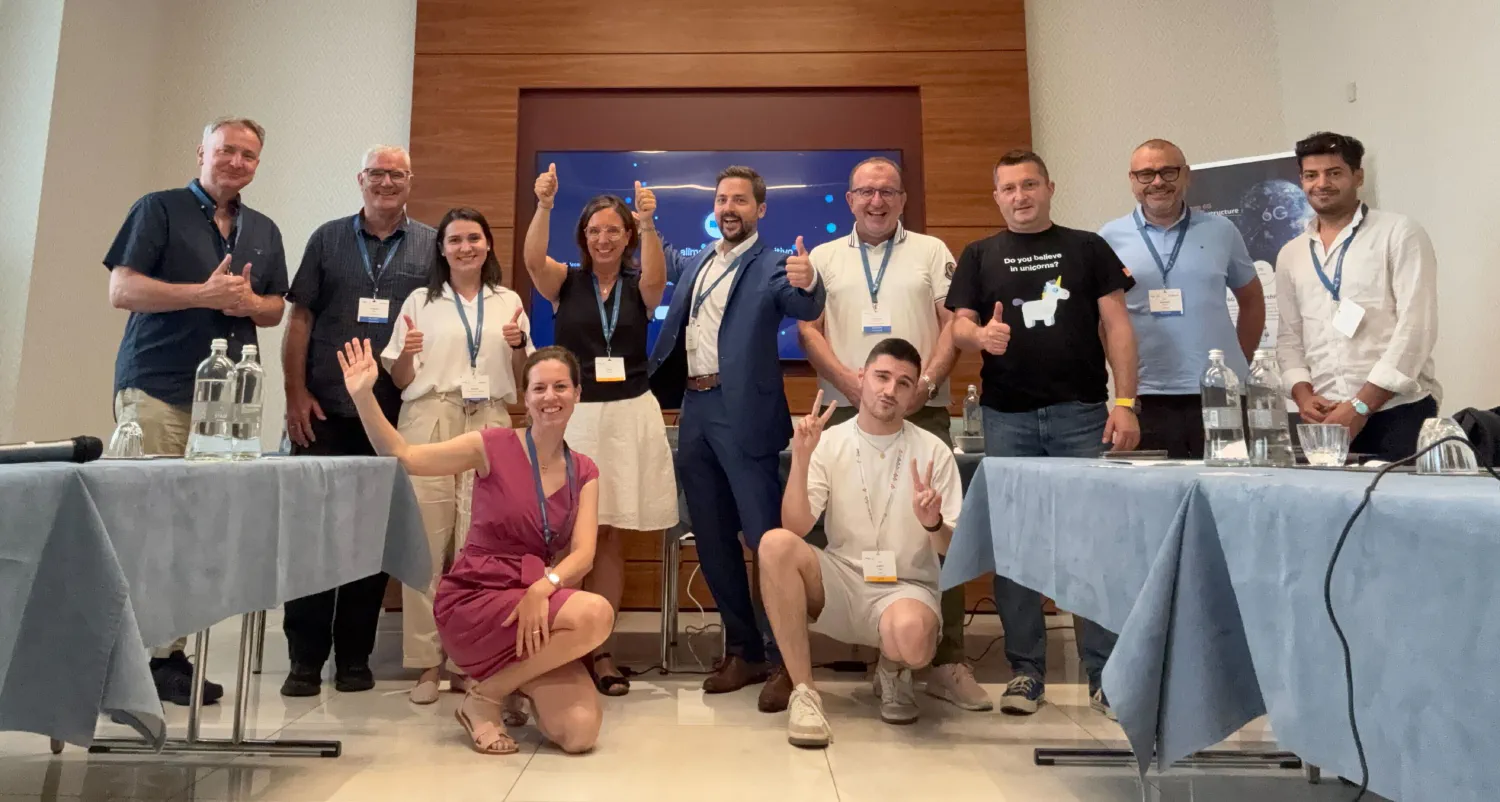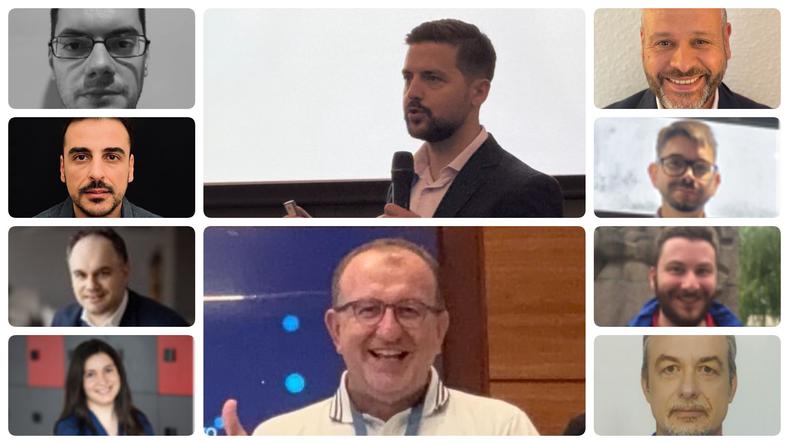A Retrospective Look at the SDG OpenOP Kick-off

Turin, Italy – 02 July 2025 – Looking back on the inaugural SDG OpenOP meeting held in Turin, Italy on 1-2 July, we reflect on the significant strides made during this event hosted by ISI/ATH under the SNS-JU SUNRISE-6G project.
This new Software Development Group OpenOP (SDG OOP) is dedicated to the development of an open-source Operator Platform allowing for operator network and testbed federation, along with standardized capability exposure APIs. Reflecting on the event, we can see how it set a solid foundation for future endeavors. Read more about it here.
The meeting was opened by the Convenor (now Chair), Theodorou Vasileios, and throughout the two-day meeting, it addressed several topics, from a quick start guide on all available tools, assets, and support, to tech sessions of demos. Some highlights and reflections are as follows:
Appointment of Leadership Group
Earlier this year in May, a call for candidacy was sent out, and positions were confirmed for the following members at this meeting. Reflecting on this, we see a strong leadership team ready to guide the project forward.
| Position | Name |
|---|---|
| Chair | Vasileios Theodorou |
| Vice Chair | Christos Verikoukis |
Detailed Working Procedures (DWP)
The working procedures for SDG OOP, including organizational roles and decision-making processes, were agreed upon. This has set a clear path for efficient and effective collaboration.
You can find the full document here.
Code Seeds
The following repositories are now considered the foundation for the group’s future work (and have been migrated from the SUNRISE-6G project):
| Component | Link |
|---|---|
| Federation Manager | federation-manager |
| Open Exposure Gateway | open-exposure-gateway |
| Service Resource Manager | service-resource-manager |
| Transformation Function SDK | tf-sdk |
This migration marks a significant milestone in our development journey.

Same as before, those repositories are open for contributions, and we encourage all interested parties to get involved.
Appointment of Technical Steering Committee
The full body of the Technical Steering Committee (TSC) was approved at this meeting. Reflecting on the diverse expertise brought together, we are confident in the committee’s ability to steer the project towards success.
In addition to the TSC, Module Development Group Leaders (MDLs) were later informed of their responsibilities and roles within a discrete module.
The core bodies of the SDG are therefore now formed!

You can find the full list of TSC members and MDLs on the team page.
Tech Sessions/Demos
Two demonstrations were given: one on the translation between CAMARA Edge Cloud Management API to Kubernetes primitives, and a second one on the creation of a QoD Session in Open5Gs via CAMARA Quality on Demand API.
These sessions provided valuable insights and practical knowledge that will be instrumental in our future work.
Roadmap
Participants heavily discussed the upcoming releases, their publication deadlines, and expected specific plans. Reflecting on these discussions, we are aligned and focused on our goals for the coming months.
The meeting report, agenda, and all related documents can be found on the ETSI Portal if you are a member or participant. Else, you can check out our Milestones on ETSI Labs.
What’s Next for OpenOP?
For the development of next-generation networks towards 6G, the need for interoperable, open, and developer-friendly solutions across telecom, cloud, and AI domains has become increasingly urgent. The ETSI SDG OpenOP aims to be a solution to this challenge by developing a standardized, open-source platform that simplifies network service and resource exposure and enables seamless federation across operator platforms.
The next steps for OOP are crucial as we build on the momentum generated from the kick-off meeting. The next TSC meeting is planned for 8th July 2025, where we will continue to drive the project forward.
For more information, browse this website or contact SDGsupport@etsi.org.
Social Media
Follow the SDG OpenOP LinkedIn, YouTube & Twitter pages for regular updates!
About ETSI
The European Telecommunications Standards Institute (ETSI) is an independent, not-for-profit organization responsible for standardization in information and communication technologies (ICT) within Europe and globally. ETSI is officially recognized by the European Union as a European Standards Organization (ESO). ETSI unites telecommunications, broadcasting, and other electronic communications networks and services with the information technology, internet, and consumer electronics industries. ETSI is a global organization with more than 900 member organizations worldwide, drawn from 65 countries and five continents.